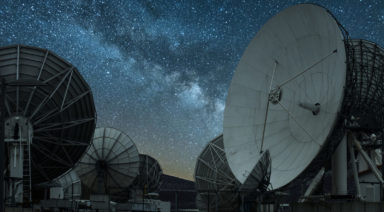New Legislation Could Open Floodgates of Government UFO Reports

The US government just made it easier to report UFOs, possibly releasing people from non-disclosure agreements. Will this open the floodgates of information?
As part of the annual defense spending bill, within the National Defense Authorization Act for 2023, the House just approved an amendment that would make it easier for current or former members of the military, government-employed civilians, and contractors to report UFOs or UAPs as the government now calls them.
The measure was sponsored by Reps. Mike Gallagher of Wisconsin and Ruben Gallego of Arizona, who have been among those in Congress calling for more transparency into UFOs.
The amendment would create a secure system for reporting any UFO phenomena and protect those who come forward from any repercussions.
Gallagher told Politico, “I believe it’s possible that folks may be precluded from being fully transparent with congress due to their being bound by non-disclosure agreements… if that’s true, I want to make sure that there’s no technical reason preventing them from speaking to us.”
The amendment would establish a dedicated system to report, “Any event relating to unidentified aerial phenomena; and any Government or Government contractor activity or program related to unidentified aerial phenomena.”
So, not only does it require a report on UAP encounters, but a report on what was done about it. Furthermore, the amendment requires a review by the Inspectors General no less than one year after enactment to confirm the appropriate actions have been taken and confirm compliance with the new system.
Luis Elizondo, whistleblower and former director of the Advanced Aerospace Threat Identification Program, reportedly told Politico the amendment was, “one of the greatest efforts in recent history to foster transparency on this topic,” and added, “This legislation may open the floodgates.”
All of this comes about two months after the first public hearing on UFOs in more than 50 years. And as we have recently reported, some on Capitol Hill have not been impressed by the lackluster response from national security agencies.
Meanwhile, the Senate is reportedly working on their own, similar, version of this bill that would also offer amnesty to anyone coming forward with information on UFOs. These measures could be the next step towards requiring compliance regarding disclosure.
Avi Loeb's Galileo Project to Use Satellites to Scan Earth for UFOs

The search for UFOs usually has us looking out into the depths of space, but what if we flipped it around and looked towards the Earth from space? Can we find UFOs from above?
An attempt to search for UFOs by pointing satellites at Earth; that’s the idea in Harvard professor Avi Loeb’s latest article for The Hill.
Loeb, also the author of “extraterrestrial: The First Sign of Intelligent Life Beyond Earth,” and founder of the Galileo Project, explains,
“We are planning to use satellite data and potentially look at unidentified objects from above. Of course, the advantage of that is we can cover the entire Earth, if we put telescopes on the ground, we need to put a lot of them to cover the same area. The goal is to establish the reality of objects, first of all, from both directions; from above using satellite data, and from below using telescope systems, and one would guide the other. So, if we see regions of activity we can put our telescope systems there. If our telescope systems see something of interest, we can monitor what that thing does from satellite data. So, I think it’s an extremely powerful method of verifying and guiding the inquiry to the nature of unidentified aerial phenomena.
Founded in the summer of 2021, the goal of the Galileo Project is to bring the search for extraterrestrial technological signatures into the mainstream. What is the next step when we find something?
“The Galileo Project has two branches: one is to figure out the nature of any object near Earth. We plan to pursue that by using ground-based telescopes that we build, but also satellite data from Planet Labs, for example.




































